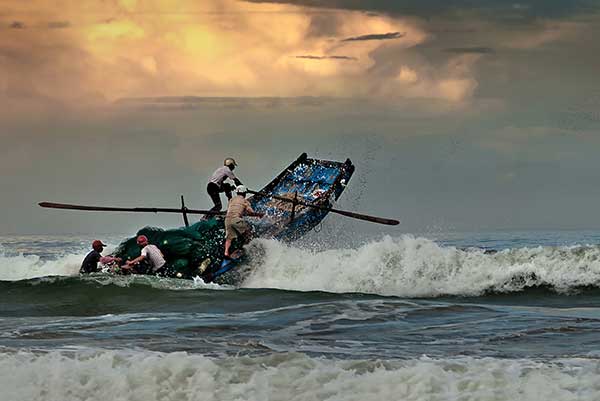 |
|
Fishermen at work.[Photo provided to China Daily] |
Ming scholar and Fujian's tea culture
Born in Dongshan, Huang Dao-zhou was a calligrapher, scholar and official of the Ming Dynasty.
His calligraphy was carved on Dongshan's most famous tourism spot: Feng Dong Shi, a giant rock standing on the edge of a cliff.
The island has a museum about him and an ancient house that is believed to be his home.
Fujian's mountainous areas produce China's best oolong tea and black tea. Like many people in Fujian, Huang was a tea lover.
Every time before he practiced his calligraphy, he would drink gongfu tea, fine tea with preparations that originated in Fujian. Gongfu here literally means "making tea with effort".
Using different vessels, including a teapot, a pitcher, spoon and cups, the practice of gongfu tea has many procedures to maximize the taste of the tea, especially finer ones. You can find a set of utensils for gongfu tea in almost in every hotel room in Fujian.
Huang even considered tea more important than rice. He famously said: "I'd rather eat no rice for a day, than live for a day without tea." A county in Fujian once invited Huang to give a lecture and offered him a big amount of money as payment. He refused the money and said: "I heard you have good tea in your county. I will prefer tea to money."
After obtaining jinshi, a type of degree offered by ancient Chinese imperial examination, in 1622, Huang held various government positions, including the minister of education portfolio. But because he did not keep bad news from the emperors, Huang was demoted. He returned to his hometown in Dongshan and focused on tea tasting and other artistic practices.
In his later years, Huang volunteered to fight against the Manchurian invasion. He was killed by the Manchurian army for refusing to surrender.
|
|
|
|
|
|
|
|
